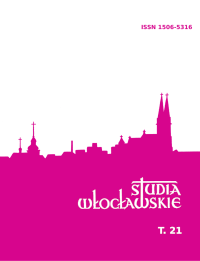Human freedom as a co-cause for the „not yet” of the Kingdom of God
Keywords:
inaugurated eschatology, prophetic eschatology, delay of the Parousia, Parousia, freedomAbstract
Human freedom can be said to be a “co-cause” in explaining why the kingdom of God has not yet been fully established here on earth. Christ’s proclaiming the nearness of the Kingdom was not a “mistake”, as Franz Overbeck, Johannes Weiss, or Albert Schweitzer have claimed. The fact that the Parousia did not come to pass, meant that the New Testament writers had to seek a way to deal with this problem by emphasizing the otherness of God’s time (2 Peter 3: 8–9) and, that the Kingdom is “already” present in the person of Jesus Christ. To explain this problem of Christian faith, it is necessary to have a proper understanding of eschatology and its two central questions – “when” and “who”. The authors mentioned above were thinking within the insupportable models of eschatology. With regard to the timing of Parousia, or the eschatological “when”, the model offered by consequent eschatology, which does not take into account the “already” of the Kingdom, can-not be substantiated. The way of the inaugurated eschatology is more correct, in emphasizing that the Kingdom has already been initiated, although its final shape will only be attained at the end of time. With regard to the perpetrators of the Parousia, i.e. the eschatological “who”, the model of the apocalyptic eschatology, in which God alone is the author of the history of salvation is also insupportable. The prophetic eschatology, in which mankind is co-responsible for the coming of God’s reign, is more convincing. Examples of this approach can be found in the theologies of Romano Guardini, Walter Kasper and Gerhard Lohfink.

